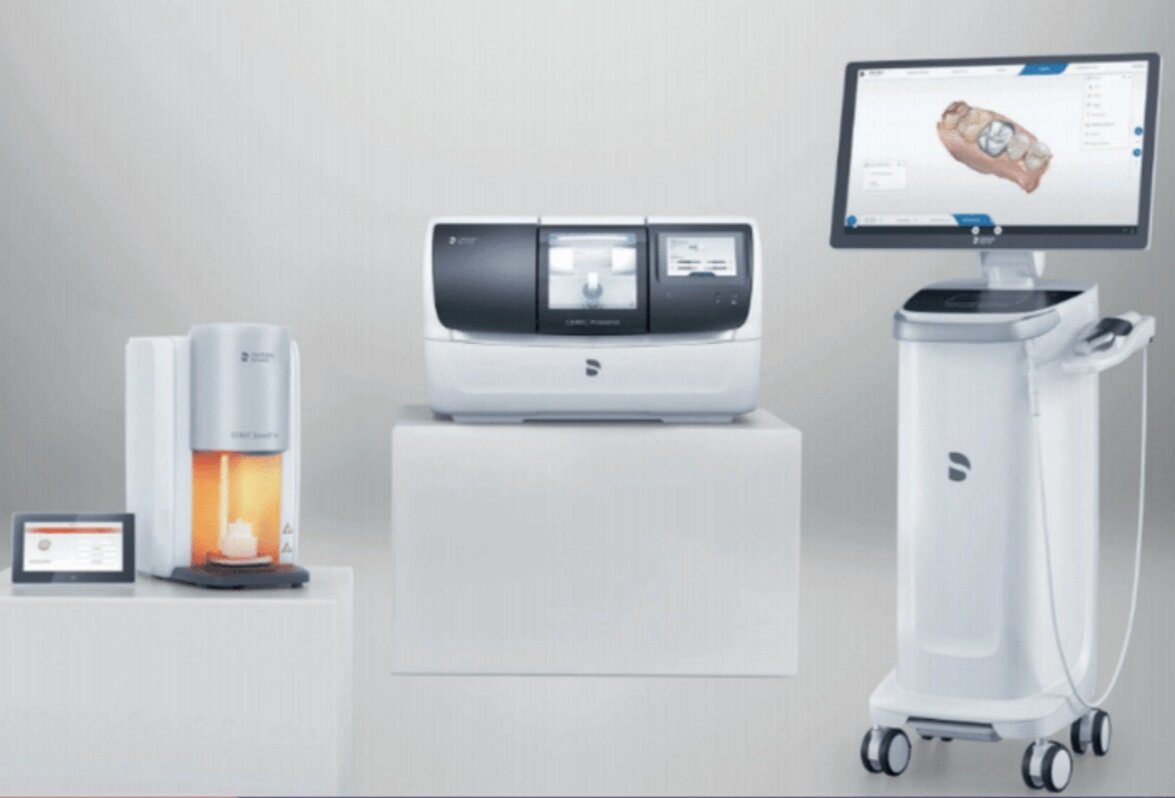IOS and CEREC
This week, On the Cusp is highlighting the dental technology of Intraoral Scanning (IOS) and Chairside Economical Restoration of Esthetician Ceramic (CEREC). CEREC is a technological and machining workflow that incorporates IOS for the design and production of restorations. With CEREC technology, restorations are designed, created and placed on patients in a single-visit. For simplicity, this process can be explained through three principal steps:
First, the CEREC intraoral scanner takes a high-quality digital scan of the patient’s mouth to generate an oral 3D map. Next, computer-aided design and manufacturing (CAD/CAM) software will design the restoration based on the patient’s intraoral scan. Lastly, the restorative is built using a subtractive (milling) process. Milling uses a rotary cutter to shape restoratives out of a block of material, such as ceramic (lithium disilicate) or zirconia. Some of these materials will need to be fired (heated) and glazed before the restoration is placed in the patient’s mouth to achieve the appropriate physical properties and appearance.
The IOS is the first step of the CEREC workflow. This is a powerful tool to base restorative design on. If you are curious about what this step looks like, we have included an overview video of how an IOS is performed.
This next video briefly highlights how all three components to the CEREC workflow are achieved.
Now that we briefly covered how CEREC operates and the first stage of IOS, let’s explore the origin of this powerful technology and why we, as dental students, need to be aware of it!
Now for the nitty gritty. Every technology has its advantages and disadvantages. After doing some research, we found quite a few!
Curious about the types of treatments we can perform? Well, here’s a list of procedures commonly done with CEREC as well as some companies you might want to look into.
E. Voorand ~ S.Roberge ~ R. Brunswick ~ DDS 2024s
Sources Consulted
https://www.dentsplysirona.com/en/explore/cerec.html
https://pubmed.ncbi.nlm.nih.gov/29906206/
https://www.sciencedirect.com/science/article/abs/pii/S1883195818304353?via%3Dihub
https://johnrcarsondds.com/your-step-by-step-guide-to-the-cerec-process/
https://pubmed.ncbi.nlm.nih.gov/11351485/
https://www.dentsplysirona.com/en/explore/cerec.html
https://www.colgate.com/en-us/oral-health/dental-visits/what-is-cerec-in-dentistry
https://www.pattersondental.com/Equipment-Technology/Product/364367/cerec-primemill
https://www.cerecdigest.net/2019/06/03/our-top-ten-intraoral-scanners-of-2019/
https://www.healthline.com/health/what-you-need-to-know-about-cerec-dental-crowns#benefits
https://www.colgate.com/en-us/oral-health/dental-visits/what-is-cerec-in-dentistry
https://pearldentalsoftware.com/marketing-team/history-dental-technology-cad-cam/












